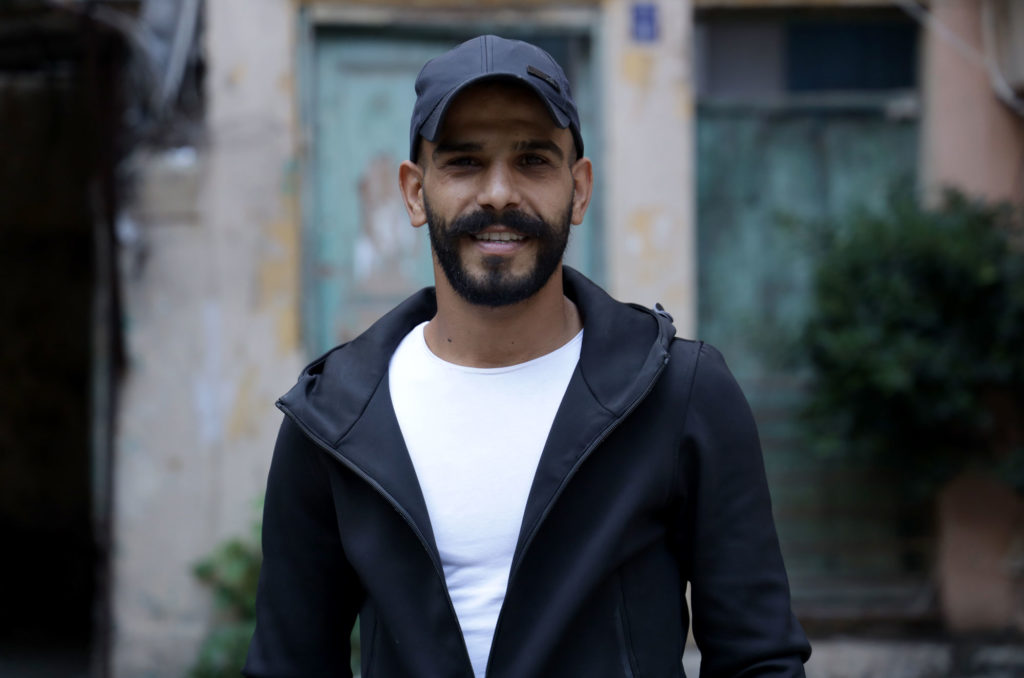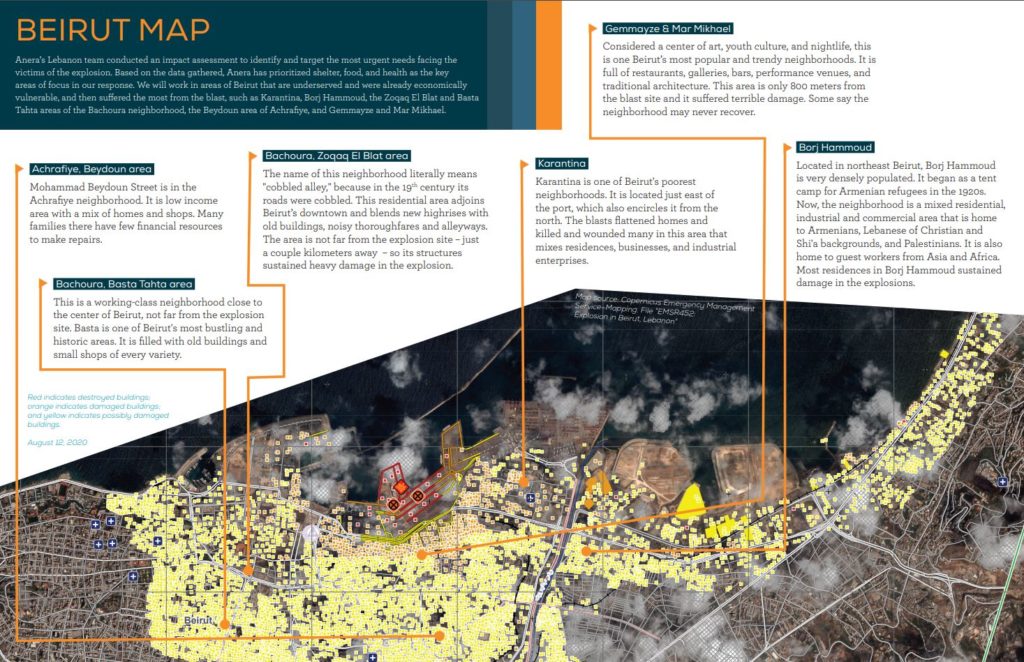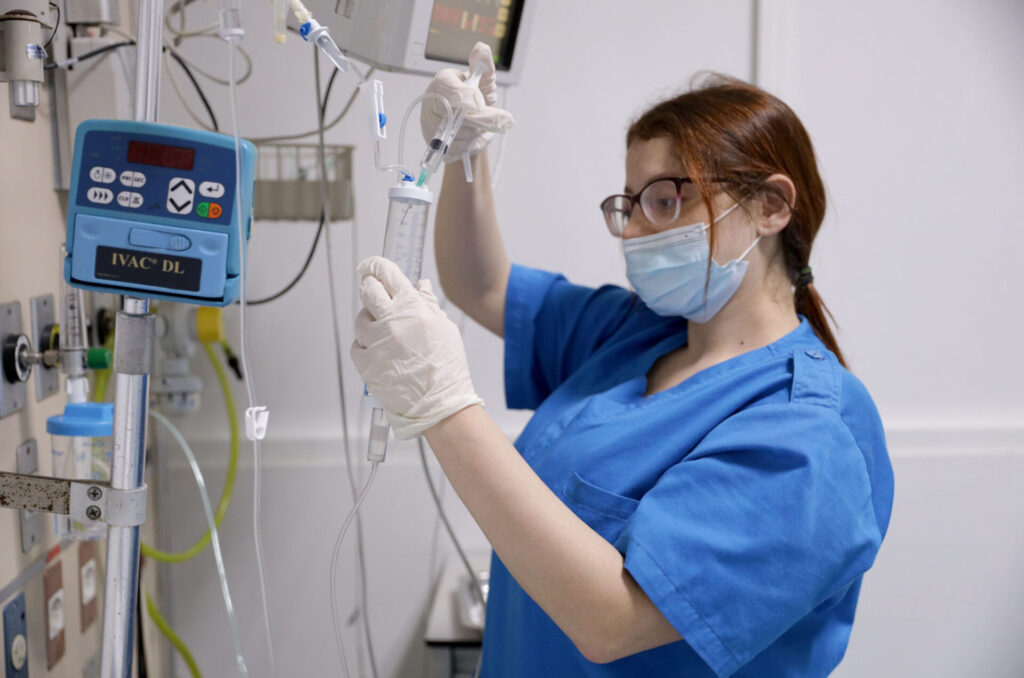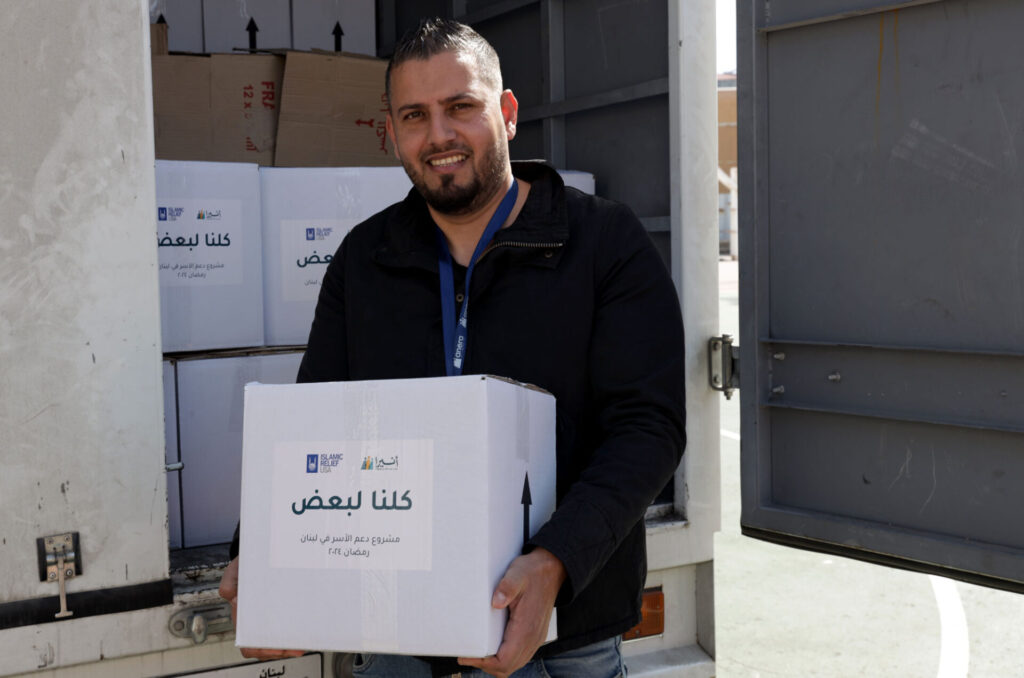WATER
Rebuilding Beirut, One Water Tank at a Time
Dec, 2020
“Not everything is gone with the blast. The meaningful things — the things we truly need, like love, resilience and passion — are still here. So we can still rebuild.”
The terrible Beirut blast on August 4 damaged more than 40,000 buildings. Of those, 3,400 were severely damaged, according to the World Bank. Many buildings lost their water tanks. This in a city that suffers from a shortage of clean water.
Due to inadequate public infrastructure, most Beirut residents rely on rooftop storage tanks for their potable water, filled with water that they must purchase from private companies.
With support from UNICEF, Anera began the urgent task of restoring as many of these household water tanks as possible. We conducted a needs assessment to see how many families lost their water tanks in the Beirut blast. Now we are installing new water tanks on hundreds of Beirut rooftops.
Mohammad Khaled, a sanitation technician and plumber with Anera's reconstruction program, explains that many of the tanks were destroyed not by the blast itself but from pressure build-up. “Closed tanks also contain lots of air, so the pressure in them can build up really quickly,” causing them to explode.


“Most tanks we saw were in dire need of replacement. Often the households have been left with no running water, so they need to buy all their water at the shop in gallons or even bottles.”
But many impacted households cannot afford to purchase bottled water every day.


Anera is focusing its reconstruction work on areas in close proximity to the explosion like Karantina, Khandak El Ghamik and Geitawi.
“The areas that we are focusing on are really in dire need of this help,” Mohammad says.


“The condition of the houses here is really deplorable. Water tanks everywhere have been torn to shreds.”
Ali is one of the homeowners in the Khandak neighborhood. He thanks Anera and UNICEF for “lifting this weight off of our shoulders.” He says it would have taken him months to save up enough to buy a new water tank.
“The situation is awful,” Ali says. “It is beyond appalling. We are now living in misery. We are literally on the brink of tears every day. It is like we went back in time!”


“I have to send my son to the well to fetch water for the family. And so do most of the families around here. We use buckets and bottles and discarded plastic gallons — basically anything we can find which could hold water.”
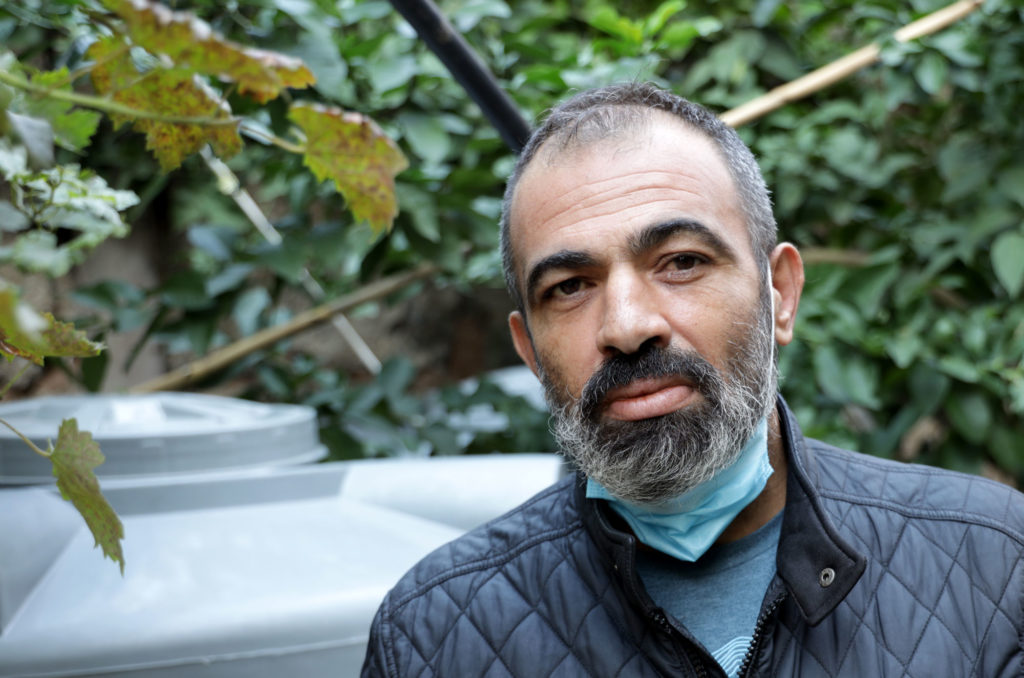

Access to clean water is a right that millions of people around the world still struggle to obtain. Many survivors of the Beirut blast now find themselves among that group, adding yet another hardship to life in Lebanon.
“There is so much more that we need to do for us to get back to where we were,” Ali says, “but your help is truly a major push forward.”


“We now have running water at home!”
Zeinab is another resident from the Khandak area. Like many Lebanese people, she believes that talking about the explosion and about Beirut is a form of collective healing.
Zeinab says,
“On the day of the explosion, I was not in Beirut, but my family and my relatives were all here. When I called, I heard the horror in their voices. They were telling me that our entire neighborhood was destroyed. And it truly was. I don't know how I drove back here, I really don't. The first thing I saw was my neighbors removing rubble to open paths and help those who were hurt. It was a nightmare.”
“My home was destroyed — glass everywhere, doors broken down. After clearing all the broken pieces from the floor, I tried to wash my face, only to realize that my water tank was completely destroyed. It exploded from the pressure and so did the pipes.”
“We had no more running water. We had to do what everyone else was doing: go to the neighborhood well and fetch water every day, using gallons jugs and bottles and sometimes buckets. But with Anera's help, we don't have to do that anymore — we have clean running water in our houses.”
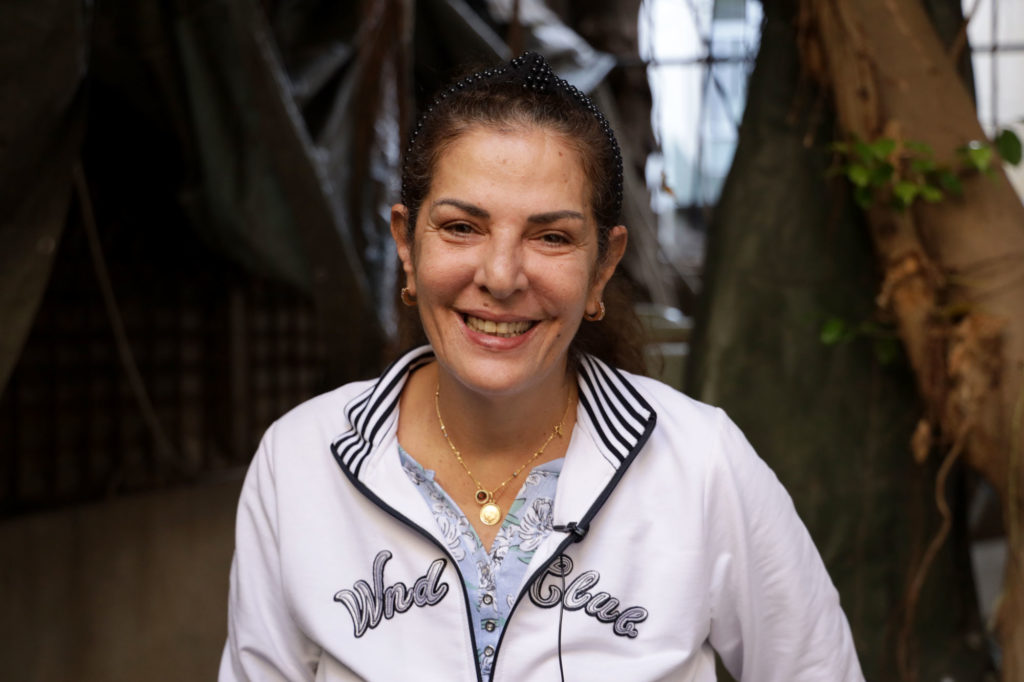

Anera’s field coordinator, Aya Hawarneh, led the initiative. A resident of Beirut herself, the young Palestinian woman visited all the houses and tried to form a human connection with every impacted family. Aya says,
“We surveyed and assessed 3,164 houses. 2,000 of them had no damaged water tanks, and another 243 sustained too much structural damage to add a new water tank at this time.”


“With the support of UNICEF, we managed to install new water tanks in 188 houses within a span of two months. I think that’s quite an achievement!”
“I feel honored to play a role in the recovery of Beirut and its people. We have met many kinds of people full of love and gratitude. The people I work for give me hope that not everything is gone with the blast. The meaningful things — the things we truly need, like love, resilience and passion — are still here. So we can still rebuild.”

